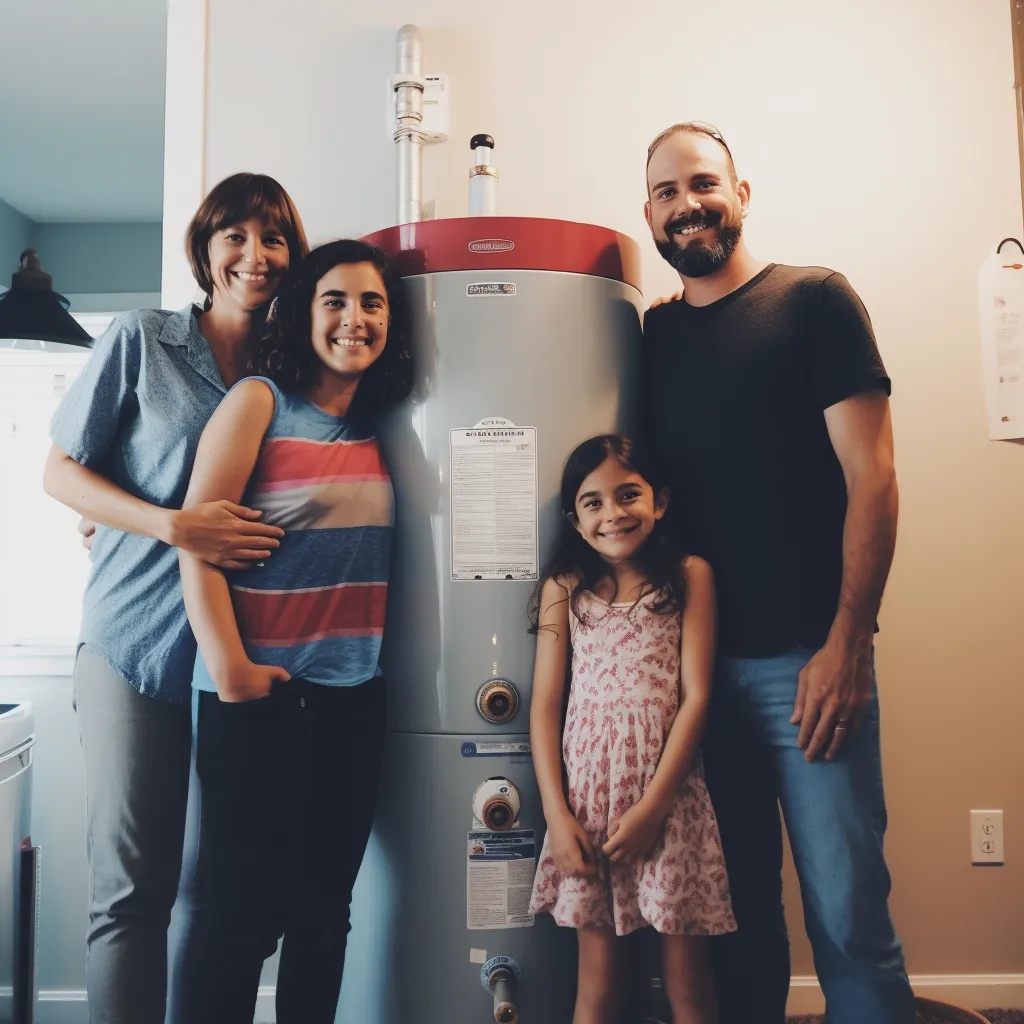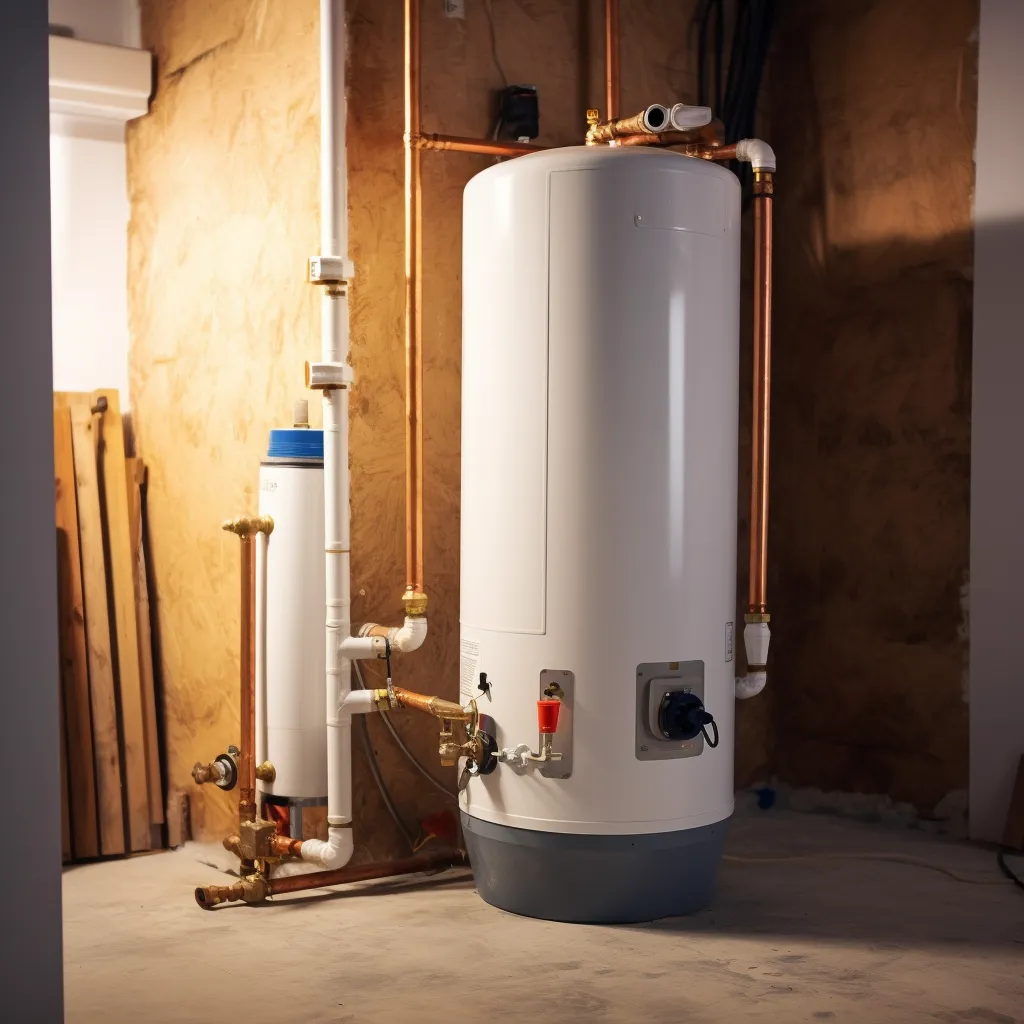Transforming Concord Home Comfort: A Guide to Smart Water Heaters

In the ever-evolving realm of smart home technology, our relationship with household appliances is undergoing a revolution. One groundbreaking development leading the charge is the advent of smart water heaters. These cutting-edge devices empower Concord, Neew Hampshire, homeowners with the ability to remotely monitor and control their water heaters, delivering unparalleled convenience, energy savings, and peace of mind. In this extensive exploration, we'll delve deep into the world of smart water heaters, uncovering the technology behind them, the multitude of benefits they offer, maintenance tips to keep them in optimal condition, and the financial aspects of purchasing and installing these futuristic appliances.
The Ingenious Technology Behind Smart Water Heaters
Smart water heaters come packed with an arsenal of state-of-the-art technology, elevating the traditional water heater into a connected and intelligent appliance. Here are some of the standout components and features that set smart water heaters apart:
1. Wi-Fi Connectivity: At the core of smart water heaters lies their ability to seamlessly connect to your home's Wi-Fi network. This connectivity opens the door to remote monitoring and control through dedicated smartphone apps or web portals. With this feature, homeowners can tweak settings, monitor energy consumption, and receive real-time alerts from virtually anywhere.
2. Learning Algorithms: Many smart water heaters boast learning algorithms that adapt to your household's hot water usage patterns. They scrutinize your historical usage data and fine-tune heating schedules to ensure you have hot water precisely when you need it while minimizing energy waste during periods of inactivity.
3. Touchscreen Interfaces: Modern smart water heaters often feature intuitive touchscreen interfaces, simplifying manual adjustments and customizing settings. This allows for swift changes in temperature or operating modes directly on the unit itself.
4. Integration with Smart Home Ecosystems: Smart water heaters seamlessly integrate with popular smart home ecosystems like Amazon Alexa, Google Assistant, or Apple HomeKit. This integration enables voice commands and coordination with other smart devices in your home.
5. Leak Detection and Prevention: Advanced smart water heaters might even incorporate leak detection sensors and automatic shut-off valves to avert water damage in case of a leak, providing an extra layer of home protection.
The Boons of Smart Water Heaters
1. Energy Efficiency: One of the standout advantages of smart water heaters is their knack for optimizing energy consumption. By learning your usage patterns and adjusting heating schedules accordingly, they can significantly reduce energy wastage, translating into lower utility bills.
2. Remote Control: With the ability to remotely monitor and control your water heater, homeowners can effortlessly manage settings. Whether you're on vacation or simply in another room, you can tweak temperature settings, power the heater on or off, and receive alerts about any issues, ensuring hot water availability whenever needed.
3. Enhanced Safety: Smart water heaters frequently come equipped with safety features like leak detection and automatic shut-off, mitigating the risk of water damage and potential hazards.
4. Extended Lifespan: Optimized operation and reduced stress on components can extend the lifespan of your water heater, saving you money on replacement costs. 5. Environmental Impact: Reducing energy consumption not only benefits your wallet but also contributes to a greener environment by lowering your carbon footprint.
Caring for Your Smart Water Heater
To ensure your smart water heater maintains its peak performance, regular maintenance is key:
1. Check for Updates: Keep the firmware and software of your smart water heater up to date to access the latest features and security enhancements.
2. Inspect for Leaks: Regularly inspect the unit and its surroundings for any signs of leaks or moisture. Swift action is essential if a leak is detected.
3. Flush the Tank: Annual tank flushing helps eliminate sediment buildup, enhancing efficiency and prolonging the heater's lifespan.
4. Clean the Air Intake: Ensure that air intake vents remain clean and unobstructed to maintain proper combustion and ventilation.
5. Replace Anode Rods: Replace the sacrificial anode rod inside the tank as needed to prevent corrosion and extend the tank's life.
The Financial Aspects of Smart Water Heaters
While investing in a smart water heater promises long-term benefits, it's crucial to consider the initial costs:
1. Purchase Price: The cost of a smart water heater can vary based on the brand, model, and features. On average, anticipate spending between $800 and $1,500 for a quality unit.
2. Installation: Professional installation is recommended, as these units require proper setup and integration with your home's Wi-Fi network. Installation costs typically range from $200 to $500, depending on your location and any additional plumbing work required.
3. Operating Costs: While smart water heaters can reduce energy consumption, electricity or gas costs remain a factor. Nevertheless, the energy savings over time can offset these ongoing expenses.
4. Maintenance: Routine maintenance costs are minimal and mostly involve occasional flushing and inspection, tasks you can either perform yourself or enlist a technician for a modest fee.


The Synergy with Renewable Energy
Smart water heaters aren't just about convenience and energy efficiency; they can also play a vital role in integrating renewable energy sources into your home's energy ecosystem. Many smart water heaters can sync with solar panels or other renewable energy systems. When your solar panels generate excess electricity, you can redirect that surplus energy to heat your water. This not only reduces your reliance on fossil fuels but also maximizes the use of clean, green energy.
A Seamless User Experience Through Mobile Apps
The mobile apps designed for smart water heaters are user-friendly and intuitive, offering real-time information on your water heater's status, energy consumption, and even estimated hot water availability. You can schedule heating times, adjust temperatures, and receive alerts for anomalies or maintenance needs. These apps also grant access to historical data, providing insights into your energy usage patterns and helping you make informed decisions to further optimize your water heating.
Adaptive Learning Algorithms for Effortless Efficiency
Smart water heaters are more than remote-controlled devices; they are genuinely intelligent. They incorporate adaptive learning algorithms that continuously analyze your hot water usage patterns. Over time, they become more adept at predicting your needs, fine-tuning heating cycles, and minimizing energy waste. This proactive approach ensures that you consistently have hot water at the ideal temperature when you need it.
Tracking Energy Consumption and Environmental Impact
For those concerned about the environment or eager to monitor utility expenses closely, smart water heaters offer comprehensive energy consumption tracking. Built-in sensors and Wi-Fi connectivity enable you to generate detailed reports on your water heater's energy usage. You can identify trends, pinpoint areas for improvement, and set energy-saving goals to further reduce your environmental impact and save on energy bills.
Integration with Smart Grids
As smart grids become increasingly prevalent, smart water heaters are poised to become integral to this energy-saving ecosystem. These water heaters can communicate with the grid to optimize their heating schedules based on the grid's demand and supply patterns. This not only benefits you by potentially reducing energy costs during off-peak hours but also contributes to a more stable and efficient energy grid.
Emergency Shutoff and Leak Prevention
One of the most underrated features of smart water heaters is their ability to prevent catastrophic water damage. Equipped with advanced sensors, these heaters can detect leaks and automatically shut off the water supply when a problem is detected. This swift response can save you from costly repairs and insurance claims, making smart water heaters a wise investment for home protection.
Extending the Lifespan of Your Smart Water Heater
While smart water heaters are engineered for longevity, taking a few additional steps can ensure your investment pays off over the long haul:
1. Regular Inspections: Periodically inspect the water heater, its connections, and the surrounding area for any signs of corrosion, rust, or wear. Addressing issues early can prevent more significant problems later.
2. Adjust Temperature Settings: Consider lowering the thermostat setting during vacations or extended absences to reduce energy consumption.
3. Clean and Maintain Vents: Ensure that air intake and exhaust vents are clean and unobstructed to maintain proper ventilation and combustion.
4. Test Pressure Relief Valve: Annually test the pressure relief valve to ensure it functions correctly. A malfunctioning valve can lead to unsafe pressure buildup.
5. Annual Professional Inspection: Schedule an annual inspection by a certified technician to check for any potential issues, such as sediment buildup, faulty components, or leaks.
The Holistic Cost of Smart Water Heater Ownership
While the upfront purchase and installation costs are considerations, it's crucial to think long-term and evaluate the overall cost of ownership:
1. Operating Costs Over Time: Smart water heaters offer substantial energy savings, potentially amounting to hundreds of dollars annually, depending on your household's hot water usage and local energy rates. These savings can swiftly offset the initial investment.
2. Extended Lifespan: The improved efficiency and reduced strain on components can extend the lifespan of your smart water heater. A conventional water heater might require replacement every 10-15 years, while a smart water heater can endure longer, sparing you the cost of premature replacements.
3. Insurance Savings: Certain insurance companies extend discounts to homeowners with leak detection and prevention systems, which are commonly found in smart water heaters. These discounts can contribute to long-term savings on your insurance premiums.
4. Environmental Impact: Diminishing energy consumption through a smart water heater doesn't just save you money; it also trims your carbon footprint, paving the way for a more sustainable future.
A Leap Forward in Home Technology
Smart water heaters represent a monumental stride in home technology, granting homeowners unprecedented control, energy efficiency, and peace of mind. Investing in a smart water heater not only enhances your daily comfort but also ushers in a more sustainable and cost-effective era for your home.
As these innovations continue to evolve, anticipate even more exciting features and benefits on the horizon, making smart water heaters an astute choice for the modern homeowner. Stay connected, stay comfortable, and stay smart with a smart water heater.

Ready to Solve Your Plumbing Needs?
For reliable, expert plumbing services tailored to the needs of Concord and its neighboring cities, look no further than EMR Plumbing and Heating. We’re here for you 24/7, ensuring that your plumbing is always in top condition.
Call us today to schedule your service!
Business Hours: Monday - Sunday, 24 Hours
Phone Number: (603) 634-8285
Location: Concord, N.H., serving all surrounding areas.
Trust your local experts at EMR Plumbing and Heating for professional, timely, and efficient plumbing solutions.
GET IN FULL TOUCH
PHONE: (603) 634-8285
EMAIL:
ryan@waterheaterconcord.com
EMR Plumbing and Heating
Concord, N.H. 03303
